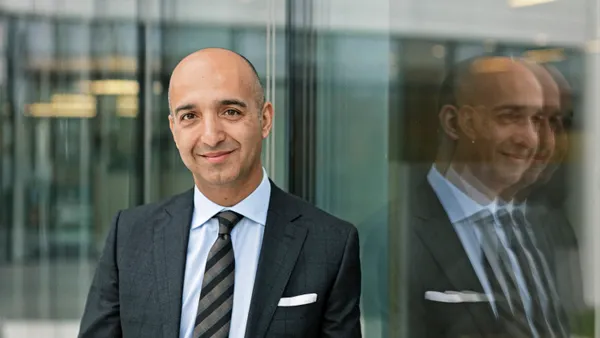Dive Brief:
- Eli Lilly on Tuesday raised its revenue forecast for the year by $3 billion as it reported second-quarter earnings that exceeded Wall Street’s expectations and sent shares climbing by double digits.
- Sales of Lilly’s drugs Mounjaro and Zepbound, which contain the same ingredient but are respectively sold for diabetes and obesity, rose sharply to total $4.3 billion in the three months between April and June. Supply of both drugs has been tight due to the immense demand for so-called GLP-1 medicines, but higher production from Lilly helped achieve a “better balance” during the quarter.
- Lilly now expects annual revenue to reach between $45.4 billion and $46.6 billion for 2024, up from a range of $42.4 billion to $43.6 billion previously. The company also anticipates better gross margins and higher earnings per share.
Dive Insight:
Lilly’s “beat and raise” earnings report contrasts with that of its rival Novo Nordisk, which earlier this week saw shares slide as sales of the weight loss medicine Wegovy fell short of expectations.
Both companies have had difficulty meeting demand, making forecasting a harder exercise as certain doses of their drugs come in and out of supply. And Wall Street’s optimistic estimates for the obesity drug market overall have set a high bar to meet.
In response to the shortages, Lilly and Novo have each committed billions of dollars to expanding their manufacturing base by buying or expanding factories. Those investments are starting to help; the Food and Drug Administration last week reported all dose forms of Zepbound are now available.
Even so, Lilly cautioned that there may still be intermittent supply disruptions for its “incretin” medicines, which include Zepbound and Mounjaro. “While supply and demand have come into better balance, expected increases in demand may result in periodic supply tightness for certain presentations and dose levels,” the company said in its earnings statement.
During the second quarter, Lilly said it was able to fulfill “the majority” of prior wholesaler backorders, contributing to the improved supply of both Zepbound and Mounjaro. So-called channel stocking, which describes when companies sell bulk quantities of a drug to wholesalers ahead of patient prescriptions, accounted for high teens to mid-20s as a percent of U.S. sales, Lilly added.
The company also reported improved commercial insurer coverage for Zepbound. (Medicare is barred from covering obesity treatments, but can reimburse for use of weight loss medicines for other uses, like heart risk reduction with Wegovy.)
Zepbound sales of $1.2 billion in the second quarter were up from the $517 million Lilly reported during the first three months of the year. Sales of Mounjaro for Type 2 diabetes totaled $3.1 billion, easily making it Lilly’s top-selling medicine.
Lilly is testing tirzepatide, the ingredient in both drugs, in a wide array of other conditions, including sleep apnea, heart failure and a liver condition known as MASH. Based on recent positive trial results, the company has submitted tirzepatide for U.S. approval in sleep apnea and expects a decision from the FDA as early as the end of this year.
Shares in Lilly rose by as much as 13% Thursday before falling back by mid-morning to trade up about 8%.














